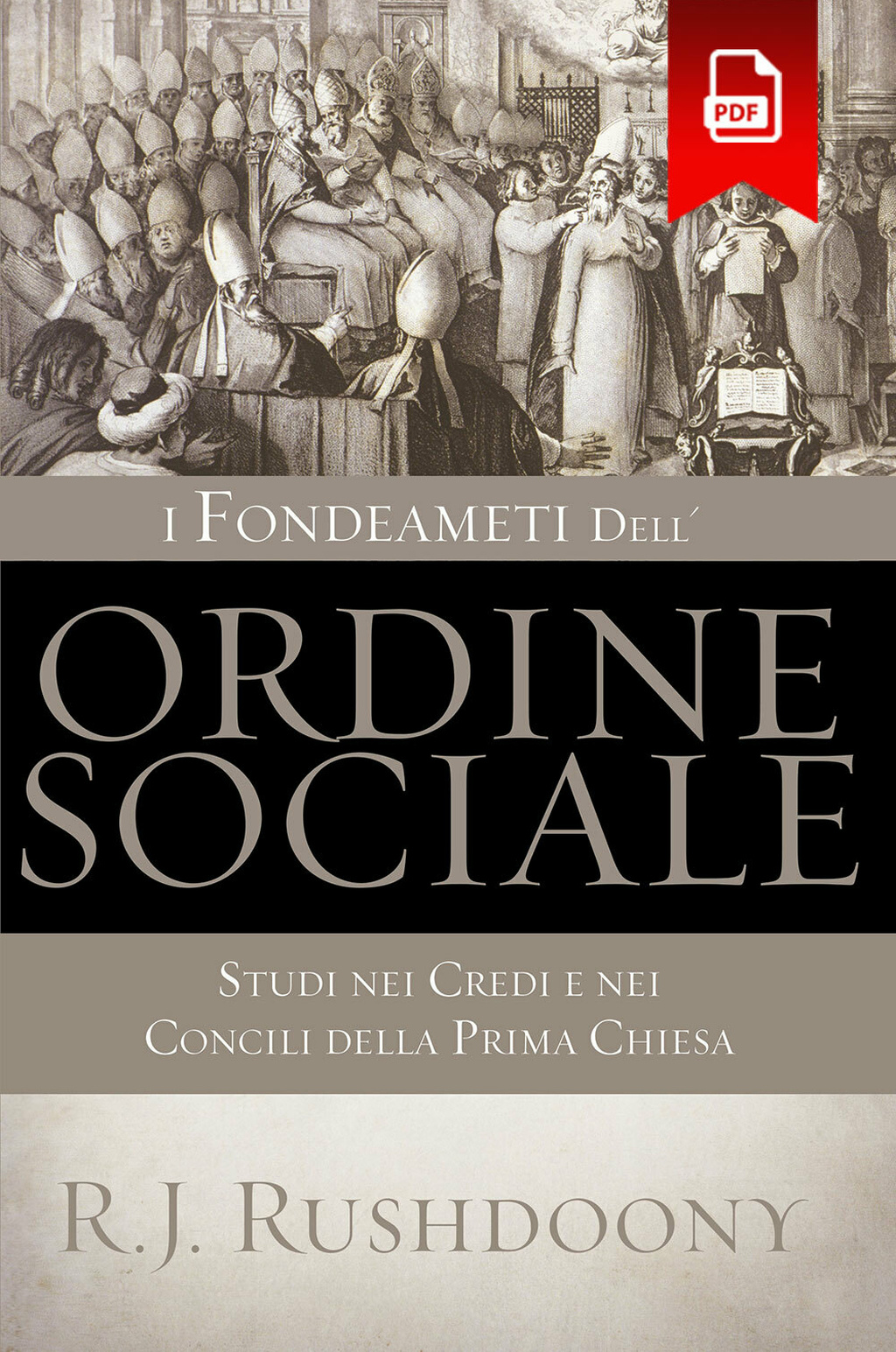
Foundations of Social Order (I Fondeameti Dell' Ordine Sociale: Studi nei Credi e nei Concili della Prima Chiesa)
The Foundations of Social Order: Studies in the Creeds and the Councils of the Early Church in Italian. "The Foundations of Social Order" remains one of the most unique books ever written in the history of Christendom, in that it examines how the creeds of the church formed the West.
eBook

- R. J. Rushdoony
- , Giorgio Modolo
- View More Authors
- Andrea Modolo
This is the Italian version of The Foundations of Social Order.
"The Foundations of Social Order was, and remains, the most unique book ever written in the history of Christendom. Nothing like it has been written before, and nothing like it has been written since. Christian and non-Christian historians have generally agreed on at least one thing about creeds and history: they are not connected in any meaningful, comprehensive way. A few non-Christian historians-Harold Berman and his Law and Revolution being a good example-have mentioned that the Christian creeds have been instrumental in shaping the legal views and therefore the legal structure of the West. But a general study of how the creeds formed the West and its unique outlook has always been lacking; the reason being that both Christian and non-Christian authors are eager to constrain the significance of the creeds to the church and the history of theology. Even Philip Schaff in his three-volume work, The Creeds of Christendom, confines their value and use to the church. The view of the creeds has been dualistic; creeds were separated from history, and history was left to follow its own course, independent from the development of Christian theology and the perfection of the faith of the saints.
"Rushdoony challenged that outlook, and he is the first author ever to create a systematic study of how the creeds of Christendom became the foundation for the worldview of Western civilization. Based on his Reformed faith, he clearly saw that ideas have consequences, and that the transformation of the pagan empire into the civilization of Christendom had its foundation in the formulation of what Christians believed about God, Jesus Christ, the Holy Spirit, about the two natures of Christ, the history and the nature of redemption, the church, etc. The creeds were not just for the church; they were the foundations of social order as we know it today, in every area of life. What we believe about politics-and therefore how we act in the political realm-will be determined by what we believe about the Trinity and the nature of redemption. What we believe about economics-and therefore how we act in the economic realm-will be determined by our beliefs about God, Jesus Christ, and His salvation. What we believe about any area of life, be it science, family, education, technologies, international relations, psychology, arts, etc.-and therefore how we act in all these areas of life-will be determined by our creeds. When Christianity set out to create a creedal culture, that creedal culture was not to be limited to the church and the personal faith of the individual. Anything not of faith was sin; and therefore everything had to be based on faith, and that faith had to be carefully formulated and communicated. Everything, including politics, and economics, and law: all life had to be based on faith, and therefore creeds mattered to all of life." - Bojidar Marinov

- R. J. Rushdoony
Rev. R.J. Rushdoony (1916–2001), was a leading theologian, church/state expert, and author of numerous works on the application of Biblical law to society. He started the Chalcedon Foundation in 1965. His Institutes of Biblical Law (1973) began the contemporary theonomy movement which posits the validity of Biblical law as God’s standard of obedience for all. He therefore saw God’s law as the basis of the modern Christian response to the cultural decline, one he attributed to the church’s false view of God’s law being opposed to His grace. This broad Christian response he described as “Christian Reconstruction.” He is credited with igniting the modern Christian school and homeschooling movements in the mid to late 20th century. He also traveled extensively lecturing and serving as an expert witness in numerous court cases regarding religious liberty. Many ministry and educational efforts that continue today, took their philosophical and Biblical roots from his lectures and books.
- Giorgio Modolo
Reformed Christian living in Italy who is committed to translating great Reformed books into Italian.
- Andrea Modolo